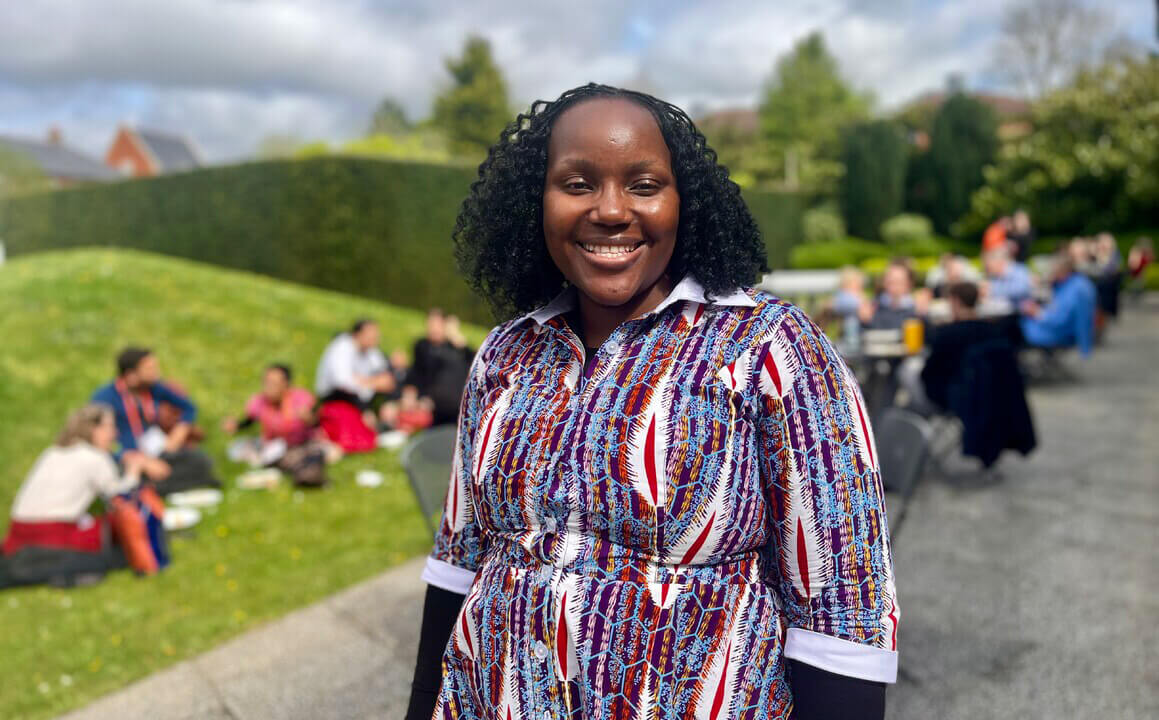Zambia’s small-scale farmers are innovating, bringing climate solutions and economic security to rural communities

Meet Prudence Muchinouta, CFO of Community Markets for Conservation (COMACO) in Zambia. She spoke with us about COMACO’s market approach to partnering with small-scale farmers, and their innovations in response to pressures of food security and land degradation in Zambia. In her words:
In Zambia, small-scale farmers play a big role in feeding the nation, as well as their own households. While there’s a perception most of our food comes from commercial farms, that’s not the case. Around 60% comes from small-scale farmers because of their focus on food crops. So, it’s important we have sustainable, resilient small-scale farming in Zambia. COMACO works with small-scale farmers across almost a third of the country to help strengthen this sector.
One of the greatest challenges is ensuring small-scale farming pays enough in relation to a farmers’ labour, materials and harvesting, especially when profits can be very minimal. We are showing communities that small-scale farming can be lucrative. We share innovations with small-scale farmers to give them some of the advantages afforded to commercial farming — like technical support for pest eradication, diverse seeds for drought resistance crops, and education and training — so that even in a drought, a farmer has a diversity of crops and something to sell.
Small-scale farmers are facing environmental challenges to food production. Because of limited land size and poor farming methods, we see land being used until it is depleted, and then left behind with no one to restore it, further impacting the climate. COMACO’s approach is to use climate smart approaches, providing market incentives and training to small-scale farmers to protect their land and national parks, and provide viable alternatives to poaching.
By learning the skills to nourish their land and grow more drought resilient crops, small-scale farmers are producing higher yields. This means better food security to sustain their own communities, and the opportunity to earn a stronger income which can go towards their children.
We incentivise farmers who are adopting conservation practices by paying them a premium price. To do this, there have to be systems in place that can aggregate small-scale crops. COMACO works through a cooperative structure, whereby we buy directly from the farmers. Traditionally, for small-scale farmers, agriculture isn’t lucrative because the profits are small or consumed by transport costs. We go to where the farmers are, so they know they have a market ready for them. We will purchase their surplus crops, and next year they are incentivised to produce more.
Supporting women in farming is an integral part of what COMACO does. In rural Zambian communities, educational preferences advantage boys. Girls are more likely to be married off, with the dowry used to send boys to school. As a mother, you do not wish for your girl to go through the same. We see women drawn to our programs because they see hope, and it’s an opportunity for them to be empowered. We see some women have managed to branch out beyond the family land to extend the property, gaining the respect of their partners and becoming decision-makers in their household.
When women start sharing their experiences, the news spreads fast. Women are embracing these programs, and they have become ambassadors in their communities for change, practicing what they have learnt and showing that these solutions work. We are seeing these women sending their children to school, and this next generation can appreciate what sustainable agriculture can do.
This is my first time at Skoll World Forum in Oxford. I’m excited to learn from a community of people that are all interested in coming up with different solutions to the same challenges we are facing, in different landscapes. I am trying to share our experiences in Zambia and the role small-scale farmers are playing towards addressing climate change, and how we are approaching the issue of gender equality.
Learn more about our partnership with Community Markets for Conservation : https://www.judithneilsonfoundation.org/partners/comaco/
| Partner: COMACO Country: Zambia Theme: Environmental stewardship; Economic equity |